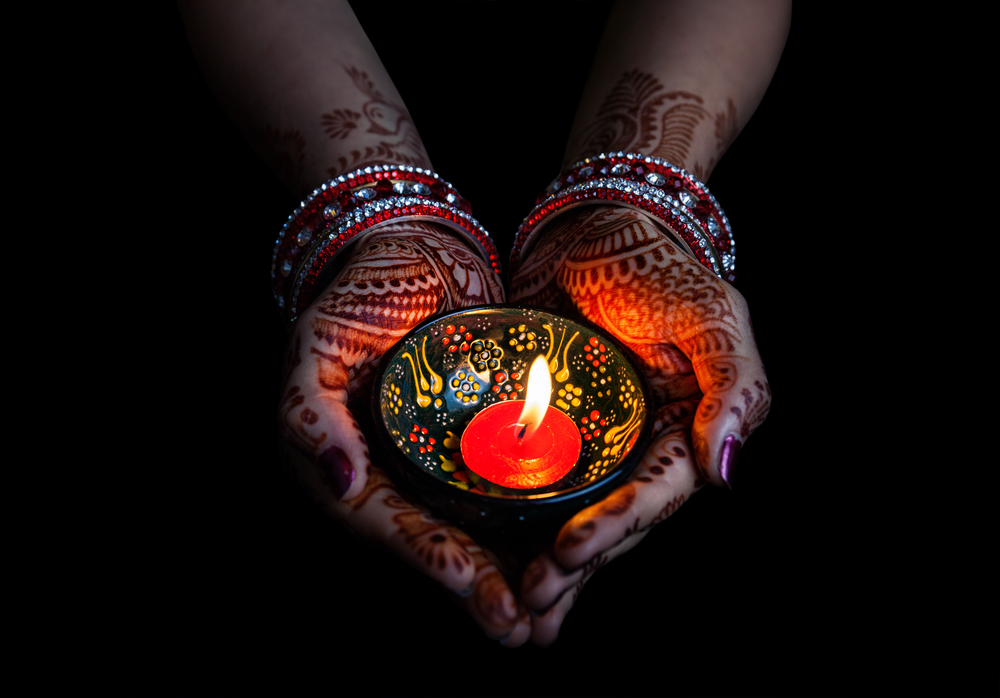November 11 marks the annual Indian festival of light over dark.

Diwali (or Deepavali, the “festival of light”) is a Hindu festival celebrated in autumn (northern hemisphere) annually. Diwali is by far the biggest and the brightest festival in India. It is as important to Hindus as the Christmas holidays are to Christians. The occasion literally illumines the entire nation with its brilliance, and dazzles all with its delight.
Diwali originated as a harvest festival that signified the final harvest of the year before winter. The festival, which coincides with the Hindu New Year, celebrates new beginnings and the victory of light over darkness.
Diwali is celebrated by Hindus, Jains, and Sikhs to honour various historical events, stories or myths, yet they all symbolize the victory of light over darkness, knowledge over ignorance, good over evil, and hope over despair.
The festival gets its name from the row (avali) of clay lamps (or deepa) that Indians light outside their homes to embody the inner light that protects us from darkness.
The Yoga, Vedanta and Samkhya schools of Hindu philosophy denote that there is something beyond the physical body and mind, which is pure, infinite, and eternal, called the Atman (Awareness). Diwali’s commemoration of the victory of good over evil refers to the light of higher knowledge dispelling all ignorance — the ignorance that veils one’s true nature, not as the body, but as the unchanging, infinite, limitless and supreme reality. With this awakening comes compassion and the awareness of the oneness of all things, and knowledge overcomes ignorance. Diwali is the celebration of this inner light over spiritual darkness.
The festival arrangements and ceremonies typically take place over five days, with the main festival night of Diwali meeting with the darkest, new moon night of the Hindu Lunisolar month Kartika.
On the eve of Diwali, people clean and decorate their homes and offices. On Diwali night, Hindus dress up in new clothes or their best outfit, light up diyas (lamps and candles) both inside and outside their home, participate in family puja (prayers) typically to Lakshmi – the goddess of wealth and prosperity. (Some believe that Lakshmi wanders the Earth looking for homes where she will be welcomed. People open their doors and windows and light lamps to invite Lakshmi in.) Following puja, fireworks take place, and then a family feast is enjoyed including mithai (sweets). There is also an exchange of gifts between family members and close friends.
On the night of Diwali (November 11), light a candle, sit quietly, close your eyes, withdraw the senses, and concentrate on the supreme light that you are.


